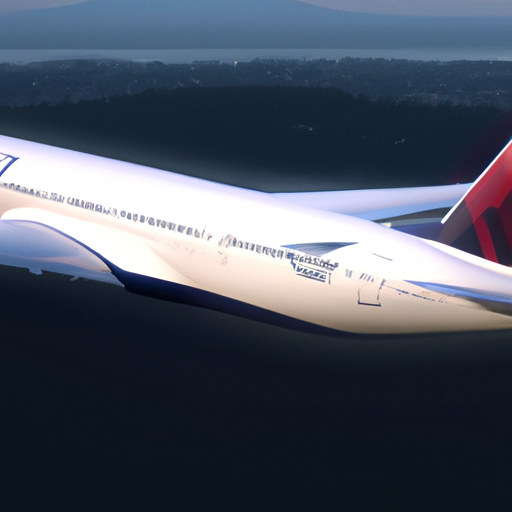
Impact of Delta’s decision on Portland’s international connectivity
Delta Gives Up On Portland To Tokyo Haneda Route
Delta Air Lines recently announced its decision to discontinue its Portland to Tokyo Haneda route, leaving many travelers and aviation enthusiasts disappointed. This move has raised concerns about the impact it will have on Portland’s international connectivity and the convenience it offered to passengers traveling between the two cities.
The Portland to Tokyo Haneda route was highly regarded for its convenience and efficiency. It provided a direct link between the two cities, allowing travelers to bypass the hassle of connecting flights and long layovers. This route was particularly popular among business travelers who valued the time-saving aspect of the non-stop flight.
With Delta’s decision to discontinue this route, travelers from Portland will now have to rely on connecting flights or alternative routes to reach Tokyo Haneda. This could potentially add hours to their travel time and increase the overall cost of their journey. Moreover, the loss of a direct flight option may deter some travelers from choosing Portland as their departure point, impacting the city’s tourism industry.
The discontinuation of the Portland to Tokyo Haneda route also raises concerns about the impact on Portland’s international connectivity. This route played a crucial role in connecting Portland to the Asian market, facilitating trade and business opportunities between the two regions. The absence of a direct flight option may make it more challenging for businesses in Portland to establish and maintain relationships with their Asian counterparts.
Furthermore, the loss of this route may have a ripple effect on other airlines operating in Portland. With Delta’s withdrawal, other carriers may reconsider their own routes and frequencies, potentially reducing the overall number of international flights available from Portland. This could limit travelers’ options and further isolate the city from global markets.
However, it is important to note that Delta’s decision to discontinue the Portland to Tokyo Haneda route is not entirely unexpected. The airline has been facing financial challenges due to the COVID-19 pandemic, which has significantly impacted the aviation industry. Many airlines have been forced to make tough decisions, including route cancellations, in order to stay afloat during these challenging times.
Despite the disappointment caused by Delta’s decision, there is hope for Portland’s international connectivity. The city’s airport authority and local government officials are actively working to attract new airlines and routes to fill the void left by Delta. They are exploring partnerships with other carriers and promoting the benefits of Portland as a gateway to the Pacific Northwest.
In conclusion, Delta’s decision to discontinue the Portland to Tokyo Haneda route has raised concerns about the impact on Portland’s international connectivity and the convenience it offered to travelers. The loss of a direct flight option may increase travel time and costs for passengers, while also potentially impacting the city’s tourism industry. However, efforts are underway to attract new airlines and routes to fill the void left by Delta, providing hope for the future of Portland’s international connectivity.
Analysis of the competitive landscape for flights between Portland and Tokyo Haneda

Delta Airlines recently announced that it will be discontinuing its route between Portland and Tokyo Haneda. This decision has left many travelers and aviation enthusiasts wondering about the competitive landscape for flights between these two cities. In this article, we will analyze the factors that have contributed to Delta’s decision and explore the implications for other airlines operating on this route.
One of the key factors that influenced Delta’s decision is the intense competition in the Portland to Tokyo Haneda market. With multiple airlines vying for passengers, it has become increasingly challenging for Delta to maintain profitability on this route. The demand for flights between these two cities is relatively high, but the supply of available seats has outpaced the growth in passenger numbers. This has resulted in a price war among airlines, driving down fares and squeezing profit margins.
Another factor that has contributed to Delta’s decision is the limited number of slots available at Tokyo Haneda Airport. Haneda is one of the busiest airports in the world, and securing landing slots can be a difficult task for airlines. Delta’s decision to discontinue its Portland to Tokyo Haneda route may be a strategic move to reallocate its resources to other more profitable routes where it can secure better slot availability.
Furthermore, the COVID-19 pandemic has had a significant impact on the aviation industry, and the Portland to Tokyo Haneda route has not been immune to its effects. Travel restrictions, reduced demand, and uncertainty surrounding international travel have all played a role in Delta’s decision. The pandemic has forced airlines to reassess their route networks and make tough decisions to ensure their long-term viability.
While Delta’s withdrawal from the Portland to Tokyo Haneda route may be seen as a setback, it also presents an opportunity for other airlines to fill the void. All Nippon Airways (ANA) and Japan Airlines (JAL) are the two major Japanese carriers operating on this route, and they may now have a chance to capture a larger share of the market. With Delta’s exit, ANA and JAL can potentially increase their frequencies or adjust their pricing strategies to attract more passengers.
Additionally, other US carriers such as United Airlines and American Airlines may also consider expanding their operations on this route. With Delta’s departure, there is now a gap in the market that these airlines can potentially exploit. However, they will need to carefully evaluate the competitive landscape and assess the profitability of operating on this route before making any decisions.
In conclusion, Delta’s decision to discontinue its Portland to Tokyo Haneda route reflects the challenging competitive landscape and limited slot availability at Tokyo Haneda Airport. The COVID-19 pandemic has further exacerbated these challenges, leading to a reassessment of route networks by airlines. While Delta’s withdrawal may present opportunities for other carriers, they will need to carefully consider the market dynamics and profitability before making any strategic moves. As the aviation industry continues to recover from the pandemic, it will be interesting to see how the competitive landscape for flights between Portland and Tokyo Haneda evolves.
Potential implications for travelers and the local economy in Portland
Delta Airlines recently announced that it will be discontinuing its nonstop service between Portland, Oregon, and Tokyo’s Haneda Airport. This decision has raised concerns among travelers and the local community about the potential implications it may have on both the travel industry and the local economy in Portland.
For years, Delta has been the only airline offering nonstop flights between Portland and Tokyo Haneda. This route has been popular among both business and leisure travelers, providing a convenient and efficient way to travel between the two cities. However, due to a decline in demand and increased competition from other airlines, Delta has made the difficult decision to end this service.
The discontinuation of the Portland to Tokyo Haneda route could have several implications for travelers. Firstly, it means that those who relied on this nonstop service will now have to find alternative ways to travel between the two cities. This could involve connecting flights or choosing a different airport as their departure or arrival point. These changes may result in longer travel times and potentially higher costs for travelers.
Furthermore, the loss of this route could also impact the local economy in Portland. The nonstop service between Portland and Tokyo Haneda has not only facilitated tourism but also fostered business relationships between the two cities. With the discontinuation of this route, it may become more challenging for businesses in Portland to connect with their counterparts in Tokyo, potentially affecting trade and investment opportunities.
Additionally, the tourism industry in Portland may also suffer as a result of this decision. The nonstop flights between the two cities have attracted a significant number of Japanese tourists to Portland, contributing to the local economy through spending on accommodations, dining, and attractions. Without this direct connection, it is possible that the number of Japanese visitors to Portland may decline, impacting the tourism industry and the businesses that rely on it.
However, it is important to note that while the discontinuation of the Portland to Tokyo Haneda route may have some negative implications, there are also potential opportunities that could arise. Other airlines may see this as an opportunity to fill the gap left by Delta and introduce their own nonstop service between the two cities. This could lead to increased competition, potentially resulting in more affordable fares and improved options for travelers.
Furthermore, the local community in Portland has shown resilience and adaptability in the face of challenges in the past. The city has a thriving entrepreneurial spirit and a strong commitment to innovation. It is possible that this setback could inspire the community to explore new avenues for growth and development, potentially leading to the emergence of new industries or the expansion of existing ones.
In conclusion, Delta’s decision to discontinue its nonstop service between Portland and Tokyo Haneda has raised concerns about the potential implications for travelers and the local economy in Portland. While there may be challenges ahead, there are also opportunities for other airlines to step in and for the local community to adapt and thrive. It is important for stakeholders to work together to find solutions that will minimize the negative impact and maximize the potential benefits for all involved.


